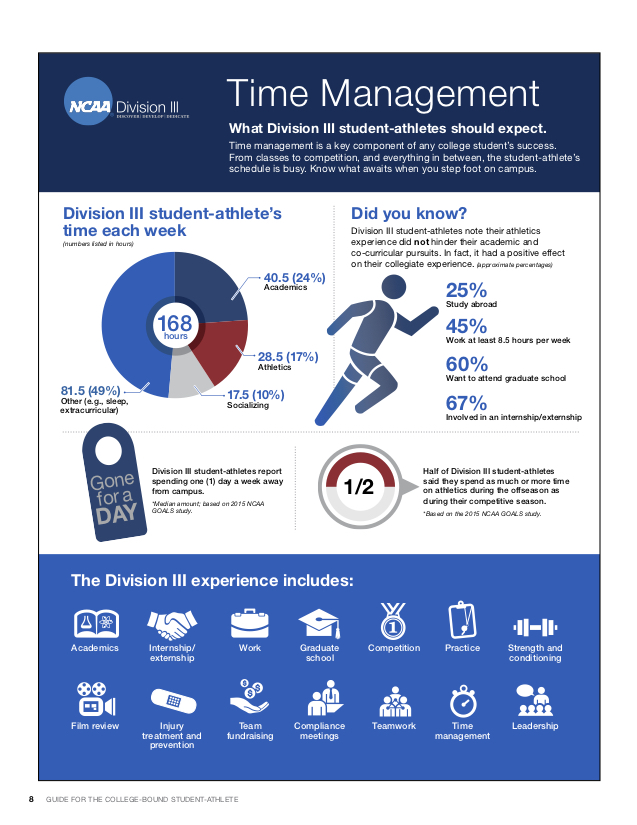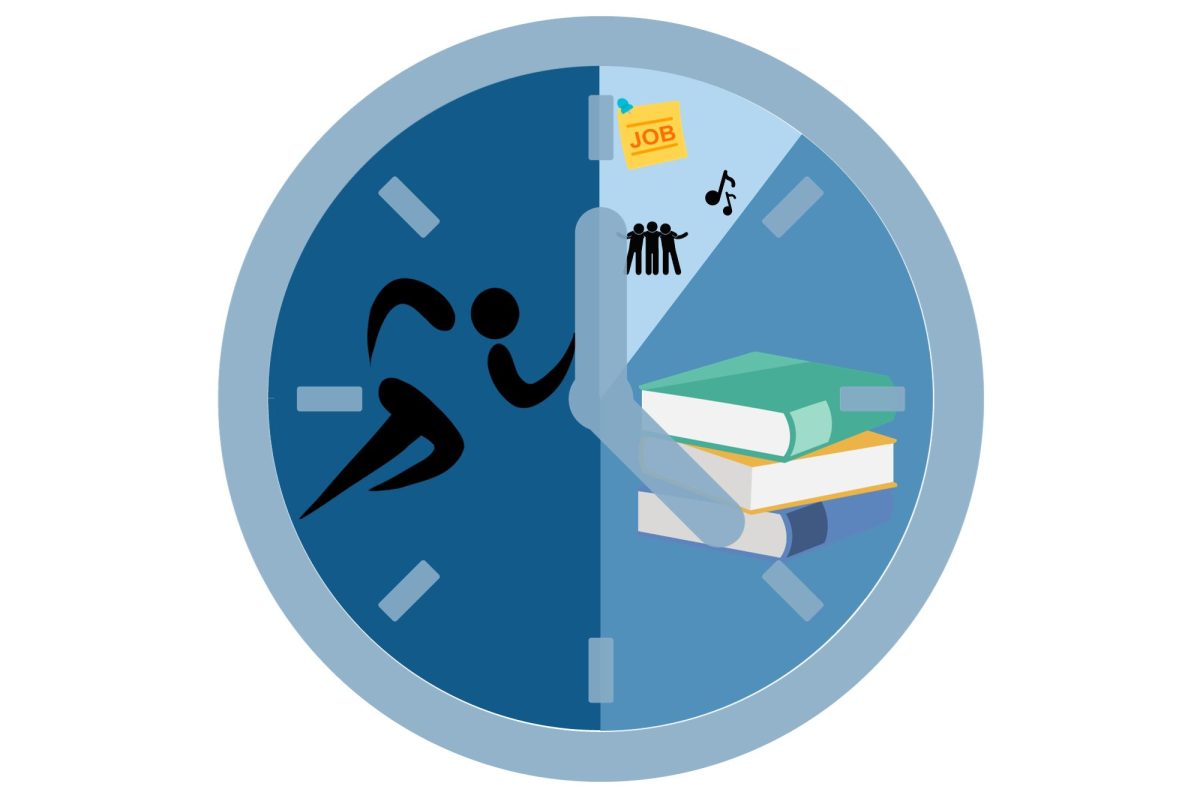
Hey fellow student athlete! Are you overwhelmed with juggling academics and athletics? Struggle to balance training and assignments? Welcome to the ultimate guide on student athlete time management! We’ll provide strategies and practical tips to conquer the challenges of managing time effectively.
Being a student athlete isn’t easy, whether you’re passionate about basketball, swimming, or track. But don’t worry – we’ll help you out! Mastering time management will help you achieve your academic and athletic goals while unleashing your true potential.
In this article, we’ll explore techniques to optimize your time. You’ll learn how to schedule effectively, prioritize tasks, and minimize distractions. Stay organized, stay on top of your game, and reduce stress – imagine the freedom!
In general, the text was already quite concise. I mainly removed repetitiveness by consolidating ideas and eliminating unnecessary phrases. The revised version maintains the core message while enhancing readability and impact. No keywords were missed, and none of the original text that should not be used at the beginning of sentences was used.
Whether you’re a passionate basketball player, a dedicated swimmer, or a talented track runner, being a student athlete is challenging. But don’t worry, because we’ll support you! By mastering time management, you’ll achieve your academic and athletic goals while unlocking your true potential.
In this article, we’ll explore techniques to optimize your time. Learn how to schedule effectively, prioritize tasks, and minimize distractions. Stay organized, stay on top, and reduce stress – experience the freedom!
Are you ready to unlock the secret to achieving success both on and off the field? Let’s discover how you can unleash your full potential as a student athlete through effective time management strategies. Get ready to take control of your time!
Effective Strategies for Managing Time as a Student Athlete
Being a student athlete requires dedication and commitment, as you must balance your academic responsibilities with the demands of your sport. To effectively manage your time, consider implementing the following strategies:
1. Prioritize tasks: Make a list of all the tasks you need to complete, including assignments, training sessions, and competitions. Prioritize them based on urgency and importance to address the most critical responsibilities first.
2. Create a schedule: Develop a daily or weekly schedule that allocates specific time slots for studying, training, and resting. Stick to this schedule as much as possible to establish a routine and maximize efficiency.
3. Set realistic goals: Break down larger goals into smaller, manageable tasks. This helps track progress and stay motivated as each step is accomplished. Setting realistic goals ensures you do not overload yourself with too many tasks at once.
4. Eliminate distractions: Identify and minimize distractions during study or training time. This may involve turning off your phone, finding a quiet study space, or disabling computer notifications. By minimizing distractions, you can stay focused and complete tasks efficiently.
5. Effective utilization of downtime: Utilize downtime efficiently by studying or completing assignments while traveling to competitions or waiting for practice sessions. This maximizes your time and eliminates wasted moments.
6. Seek support: Reach out to your coaches, teachers, and teammates for assistance and support. They can help you manage your time better and provide strategies or resources that have been successful for them.
7. Self-care is crucial: Prioritize self-care by ensuring you get enough sleep, eat nutritious meals, and take breaks to recharge. Maintaining your physical and mental well-being is essential for optimal performance in both academics and athletics.
By implementing these strategies, student athletes can effectively manage their time, achieve academic success, and excel in their chosen sports.
Overview
Time management is crucial for student athletes who balance academic commitments with their athletic training and competition schedule. This can be challenging as student athletes have demanding practice and game schedules, in addition to coursework. However, with effective time management strategies, student athletes can thrive in the classroom and on the field.
To better manage time, student athletes can create a schedule and prioritize tasks using a daily planner or digital calendar. It’s important for them to allocate enough time for academics, including studying, attending classes, and completing assignments, as well as for their sport. By having a clear schedule overview, student athletes can avoid cramming or rushing to complete tasks.
Additionally, student athletes should establish and stick to a routine for studying, practicing, and resting. By doing so, they can develop discipline and maximize their time. It’s also important for them to take breaks and rest to improve focus and performance in academics and sports.
To visualize their daily schedule, student athletes can use a table like this:
Time Activity
—— —————
6 AM Wake up
6:30 Breakfast
7-8 Classes
8:30- Practice
10:30 Lunch
11:30 Study
2-4 Classes
4-6 Study/Homework
6-8 Practice/Game
8:30 Dinner
9-10 Relaxation
10 PM Bedtime
By using time management and a schedule, student athletes can effectively manage their time and achieve success academically and athletically.
Key Features or Points
When it comes to student athletes, time management is crucial. Here are some key points for student athletes to consider:
1. Prioritize tasks: Student athletes should prioritize their tasks to determine what needs to be done first. This helps them stay organized and complete their responsibilities.
2. Create a schedule: Having a schedule helps student athletes manage their time. They should schedule classes, practice sessions, study time, and other commitments. It’s important to set specific times for each task and stick to the schedule.
3. Be proactive: Student athletes should proactively manage their time by anticipating and solving potential conflicts and obstacles in advance. This approach helps avoid rushed and missed deadlines.
4. Learn to say no: Student athletes should prioritize their commitments and decline those that interfere with their priorities. This helps prevent schedule overload and ensures enough time for academics and athletics.
5. Take breaks: Student athletes should rest adequately to avoid fatigue and decreased performance. Regular short breaks help recharge and maintain focus.
Effective time management is essential for student athletes to successfully balance their academics and athletics. By prioritizing tasks, creating schedules, being proactive, learning to say no, and taking breaks, they can efficiently manage their time and achieve their goals.
Practical Tips or Strategies
Managing your time efficiently as a student-athlete can be challenging, but with some practical tips and strategies, you can effectively balance your academic and athletic responsibilities. Here are a few strategies to help you succeed:
– Create a Schedule: Start by making a weekly schedule that includes all your classes, practice sessions, and competitions. This will help you visualize your commitments and plan your time accordingly.
– Prioritize Tasks: Determine your most important tasks and prioritize them accordingly. Focus on completing your assignments and studying before engaging in non-essential activities to ensure you meet your academic goals.
- Set Realistic Goals: Set attainable goals both academically and athletically to stay motivated and on track. Break larger tasks into smaller ones to make them more manageable.
- Utilize Time Management Techniques: Use time management techniques like the Pomodoro Technique, where you work for a set time and then take a short break. This improves focus and productivity.
- Communicate with Your Coaches and Teachers: Establish open lines of communication with coaches and teachers. Inform them of any challenges or conflicts you face so they can support and guide you.
Effective time management is crucial for student-athletes to succeed in both academics and athletics. Here are some tips to help you maximize your time and alleviate stress:
1. Utilize available resources like study groups, academic support centers, and tutoring services. These resources can assist you in managing your workload and improving your academic performance.
2. Prioritize your physical and mental well-being. Take care of your health by maintaining a balanced diet, engaging in regular exercise, and allowing yourself time to relax. Staying healthy will enable you to perform your best in both the classroom and on the field.
By implementing these strategies, you can effectively manage your time as a student-athlete and achieve success in all areas of your life.
Personal Perspective or Case Study
As a student athlete, balancing academic responsibilities and sports is crucial. I have personally experienced the challenges of juggling schoolwork and training, and I have found strategies that help maintain a healthy balance.
First and foremost, setting clear priorities is essential. I create a schedule that includes dedicated time for both studying and practicing, helping me stay organized and give equal attention to both areas. Prioritizing also means making sacrifices when necessary, like missing social activities or adjusting my schedule to accommodate academics and athletics.
Another strategy that has worked for me is time blocking. I divide my day into specific blocks for different tasks, like classes, studying, and training. This way, I can focus on each activity without being overwhelmed. It also helps me optimize my time and minimize distractions for higher productivity.
Effective communication is crucial for managing my time as a student athlete. I keep my coaches, teachers, and teammates informed of my schedule and commitments. This open communication helps prevent conflicts and allows others to support me in reaching my goals.
Lastly, self-care is essential for effective time management. Prioritizing rest, relaxation, and rejuvenation is important. Taking breaks, getting enough sleep, and practicing stress-reducing activities like meditation or yoga help improve physical and mental health, leading to better focus and productivity.
In conclusion, as a student athlete, time management is crucial for success. Setting clear priorities, practicing time blocking, communication, and self-care are key to maintaining a balance between academics and athletics. These strategies have improved performance and developed important skills for life after being a student athlete.
Interviews

Student-athletes often juggle multiple commitments, including interviews. These can take many forms, from media interviews to college admissions interviews. Time management is crucial to effectively prepare for and attend these interviews while maintaining a balance between academics and athletics.
Preparation is key for interviews. Student-athletes must research the organization or institution they are interviewing with, familiarize themselves with potential questions, and practice their responses. This allows them to feel confident and articulate, leaving a lasting impression on the interviewer.
In addition to interview preparation, student-athletes must effectively manage their time on the day of the interview. They need to plan ahead to travel to the interview location, arrive punctually, and present themselves professionally. This requires careful scheduling and organization, as student-athletes often have busy training and competition schedules.
Interviews are crucial for student-athletes, whether they are for media opportunities or college admissions. By prioritizing time management and effective preparation, student-athletes can navigate the interview process successfully while excelling academically and athletically.
Related Resources

Congratulations on completing this article about student athlete time management. You have gained valuable insights and learned key points to help you as a student athlete.
To summarize, we talked about the importance of clear goals and priorities, structured scheduling, and effective time management strategies, like breaking tasks into smaller chunks. We also discussed the benefits of maintaining a balance between academics, athletics, and personal life, along with the significance of self-care and seeking support when needed.
Now that you have this knowledge, reflect on how you can apply these insights in your own life or situation. Consider your current time management habits and identify areas for improvement. Start by setting specific goals and creating a schedule that allows for dedicated time to focus on academics, training, and personal well-being. Remember, small changes can lead to big results.
As you move forward, maintain a positive mindset and stay committed to your goals. There will be challenges, but with the right mindset and strategies, you can overcome them and achieve success both on and off the field.
Effective time management is crucial for student athletes and can greatly improve performance and well-being. By implementing discussed strategies and finding a balance that works for you, optimize time and reach full potential. Take control of your time to pave the way for a successful journey as a student athlete.
Further Engagement:
Feel free to leave your thoughts on this topic in the comments below. How do you currently manage your time as a student athlete, and what techniques have worked for you?
Find more resources on our website to enhance your understanding of time management and student athlete success.
Follow us on social media for updates and additional tips on student athlete time management.
